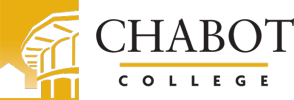Robots are used in many aspects of manufacturing from loading, unloading, sorting, pick-and-place, assembly, dispensing, painting, machining, welding, cutting, casting, molding, finishing, cleaning, inspection, quality control and harvesting. Our ESYS 69/269 course introduces our students to the fundamental concepts of robot safety, operation, programming and maintenance of industrial robots by using the FANUC LRMate 200iC Robots with their R-30iB Mate Plus Controllers. The control of the 6 robot axes is facilitated via the FANUC MH iPendant with Touch Screens. Programming of the robot is also learned on the same FANUC teach iPendants. This course provides the foundation for understanding how robots can enhance functionality, increase productivity, and improve efficiency in manufacturing, food/beverage packaging, factories, health care, mining and agriculture.
Course Details:- Strongly Recommended: ESYS 50
Terms Offered: Spring
